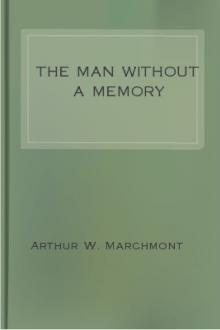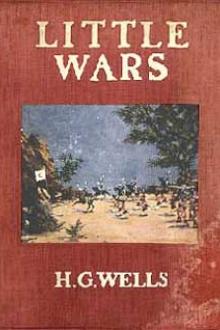The Story of the Malakand Field Force by Winston S. Churchill (guided reading books txt) 📕

- Author: Winston S. Churchill
- Performer: -
Book online «The Story of the Malakand Field Force by Winston S. Churchill (guided reading books txt) 📕». Author Winston S. Churchill
Sir Bindon Blood, who knew what the ground behind the ridge was like, perceived at once how matters stood, and made his plans accordingly. He determined to strike at the enemy’s left, thus not only turning their flank, but cutting off their proper line of retreat. If once his troops held the point, where the long ridge ran into the main hills, all the tribesmen who had remained on the ridge would be caught. He accordingly issued orders as follows:—
The Royal West Kent were to mask the front and occupy the attention of the enemy. The rest of the infantry, viz., 24th and 31st Punjaub Infantry and the 45th Sikhs, were to ascend the hills to the right, and deliver a flank attack on the head of the ridge. The cavalry were to be held in readiness to dash forward along the causeway—to repair which a company of sappers was posted—as soon as the enemy were driven off the ridge which commanded it, and pursue them across the rice fields into the open country beyond. The whole of the powerful artillery was to come into action at once.
The troops then advanced. The Royal West Kent Regiment began the fight, by driving some of the enemy from the Buddhist ruins on a small spur in advance of the main position. The 10th Field Battery had been left in rear in case the guns might stick in the narrow roads near Thana village. It had, however, arrived safely, and now trotted up, and at 8.50 A.M. opened fire on the enemy’s position and at a stone fort, which they occupied strongly. A few minutes later No.7 Mountain Battery came into action from the spur, which the Royal West Kent had taken. A heavy artillery fire thus prepared the way for the attack. The great shells of the Field Artillery astounded the tribesmen, who had never before witnessed the explosion of a twelve-pound projectile. The two mountain batteries added to their discomfiture. Many fled during the first quarter of an hour of the bombardment. All the rest took cover on the reverse slope and behind their sungars.
Meanwhile the flank attack was developing. General Meiklejohn and his infantry were climbing up the steep hillside, and moving steadily towards the junction of the ridge with the main hill. At length the tribesmen on the spur perceived the danger that was threatening them.
They felt the grip on their line of retreat. They had imagined that the white troops would try and force their path along the causeway, and had massed considerable reserves at the lower end of the ridge. All these now realised that they were in great danger of being cut off. They were on a peninsula, as it were, while the soldiers were securing the isthmus. They accordingly began streaming along the ridge towards the left, at first with an idea of meeting the flank attack, but afterwards, as the shell fire grew hotter, and the musketry increased, only in the hope of retreat. Owing to the great speed with which the mountaineers move about the hills, most of them were able to escape before the flank attack could cut them off. Many however, were shot down as they fled, or were killed by the artillery fire. A few brave men charged the 31st Punjaub Infantry, but were all destroyed.
Seeing the enemy in full flight, Sir Bindon Blood ordered the Royal West Kent to advance against the front of the now almost deserted ridge. The British infantry hurrying forward climbed the steep hill and captured the stone sungars. From this position they established touch with the flank attack, and the whole force pursued the flying tribesmen with long-range fire.
The “Gate of Swat” had been forced. It was now possible for troops to advance along the causeway. This had, however, been broken in various places by the enemy. The sappers and miners hastened forward to repair it. While this was being done, the cavalry had to wait in mad impatience, knowing that their chance lay in the plains beyond. As soon as the road was sufficiently repaired to allow them to pass in single file, they began struggling along it, and emerged at the other end of the causeway in twos and threes.
An incident now ensued, which, though it afforded an opportunity for a splendid act of courage, yet involved an unnecessary loss of life, and must be called disastrous. As the cavalry got clear of the broken ground, the leading horsemen saw the tribesmen swiftly running towards the hills, about a mile distant. Carried away by the excitement of the pursuit, and despising the enemy for their slight resistance, they dashed impetuously forward in the hope of catching them before they could reach the hills.
Lieutenant-Colonel Adams, on entering the plain, saw at once that if he could seize a small clump of trees near a cemetery, he would be able to bring effective dismounted fire to bear on the retreating tribesmen. He therefore collected as many men as possible, and with Lieutenant Maclean, and Lord Fincastle, the Times correspondent, rode in the direction of these points. Meanwhile Captain Palmer, who commanded the leading squadron, and Lieutenant Greaves of the Lancashire Fusiliers, who was acting war correspondent of the Times of India, galloped across the rice fields after the enemy. The squadron, unable to keep up, straggled out in a long string, in the swampy ground.
At the foot of the hills the ground was firmer, and reaching this, the two officers recklessly dashed in among the enemy. It is the spirit that loses the Empire many lives, but has gained it many battles. But the tribesmen, who had been outmanoeuvred rather than outfought, turned savagely on their pursuers. The whole scene was witnessed by the troops on the ridge. Captain Palmer cut down a standard-bearer. Another man attacked him. Raising his arm for a fresh stroke, his wrist was smashed by a bullet. Another killed his horse. Lieutenant Greaves, shot through the body, fell at the same moment to the ground. The enemy closed around and began hacking him, as he lay, with their swords. Captain Palmer tried to draw his revolver. At this moment two sowars got clear of the swampy rice fields, and at once galloped, shouting, to the rescue, cutting and slashing at the tribesmen. All would have been cut to pieces or shot down. The hillside was covered with the enemy. The wounded officers lay at the foot. They were surrounded. Seeing this Lieutenant-Colonel Adams and Lord Fincastle, with Lieutenant Maclean and two or three sowars, dashed to their assistance. At their charge the tribesmen fell back a little way and opened a heavy fire. Lord Fincastle’s horse was immediately shot and he fell to the ground. Rising, he endeavoured to lift the wounded Greaves on to Colonel Adams’ saddle, but at this instant a second bullet struck that unfortunate officer, killing him instantly. Colonel Adams was slightly, and Lieutenant Maclean mortally, wounded while giving assistance, and all the horses but two were shot.
In spite of the terrible fire, the body of Lieutenant Greaves and the other two wounded officers were rescued and carried to the little clump of trees.
For this gallant feat of arms both the surviving officers, Colonel Adams and Lord Fincastle, were recommended for, and have since received, the Victoria Cross. It was also officially announced, that Lieutenant Maclean would have received it, had he not been killed. There are many, especially on the frontier, where he was known as a fine soldier and a good sportsman, who think that the accident of death should not have been allowed to interfere with the reward of valour.
The extremes of fortune, which befell Lord Fincastle and Lieutenant Greaves, may well claim a moment’s consideration. Neither officer was employed officially with the force. Both had travelled up at their own expense, evading and overcoming all obstacles in an endeavour to see something of war. Knights of the sword and pen, they had nothing to offer but their lives, no troops to lead, no duties to perform, no watchful commanding officer to report their conduct. They played for high stakes, and Fortune never so capricious as on the field of battle, dealt to the one the greatest honour that a soldier can hope for, as some think, the greatest in the gift of the Crown, and to the other Death.
The flight of the enemy terminated the action of Landakai. Thus in a few hours and with hardly any loss, the “Gate of Swat,” which the tribesmen had regarded as impregnable, had been forced. One squadron of the Guides cavalry, under Captain Brasier Creagh, pursuing the enemy had a successful skirmish near the village of Abueh, and returned to camp about 6.30 in the evening. [This officer was mentioned in despatches for his skill and judgment in this affair; but he is better known on the frontier for his brilliant reconnaissance towards Mamani, a month later, in which in spite of heavy loss he succeeded in carrying out General Hammond’s orders and obtained most valuable information.] During the fight about 1000 tribesmen had threatened the baggage column, but these were but poor-spirited fellows, for they retired after a short skirmish with two squadrons of the 11th Bengal Lancers, with a loss of twenty killed and wounded. The total casualties of the day were as follows:—
BRITISH OFFICERS.
Killed—Lieutenant R.T. Greaves, Lancs. Fusiliers.
” ” H.L.S. Maclean, Guides.
Wounded severely—Captain M.E. Palmer, Guides.
Wounded slightly—Lieutenant-Colonel R.B. Adams, Guides.
NATIVE RANKS—Wounded—5.
FOLLOWERS—Wounded—2.
Total Casualties—11.
It must be remembered, that but for the incident which resulted in the deaths of the officers, and which Sir Bindon Blood described in his official despatch as an “unfortunate contretemps,” the total casualties would have only been seven wounded. That so strong a position should have been captured with so little loss, is due, firstly, to the dispositions of the general; and secondly, to the power of the artillery which he had concentrated. The account of the first attempt to storm the Dargai position on the 20th of October, before it had been shaken by artillery fire, when the Dorsetshire Regiment suffered severe loss, roused many reflections among these who had witnessed the action of Landakai.
The next morning, the 18th, the force continued their march up the valley of the Upper Swat. The natives, thoroughly cowed, offered no further opposition and sued for peace. Their losses at Landakai were ascertained to have exceeded 500, and they realised that they had no chance against the regular troops, when these were enabled to use their powerful weapons.
As the troops advanced up the fertile and beautiful valley, all were struck by the numerous ruins of the ancient Buddhists. Here in former times were thriving cities, and civilised men. Here, we learn from Fa-hien, [Record Of Buddhistic Kingdoms. Translated by James Legge, M.A., LL.D.] were “in all 500 Sangharamas,” or monasteries. At these monasteries the law of hospitality was thus carried out: “When stranger bhikshus (begging monks) arrive at one of them, their wants are supplied for three days, after which they are told to find a resting-place for themselves.” All this is changed by time. The cities are but ruins.
Savages have replaced the civilised, bland-looking Buddhists, and the traveller who should apply for hospitality, would be speedily shown “a resting-place,” which would relieve his hosts from further trouble concerning him.
“There is a tradition,” continues the intrepid monk, who travelled through some of the wildest countries of the earth in the darkest ages of





Comments (0)